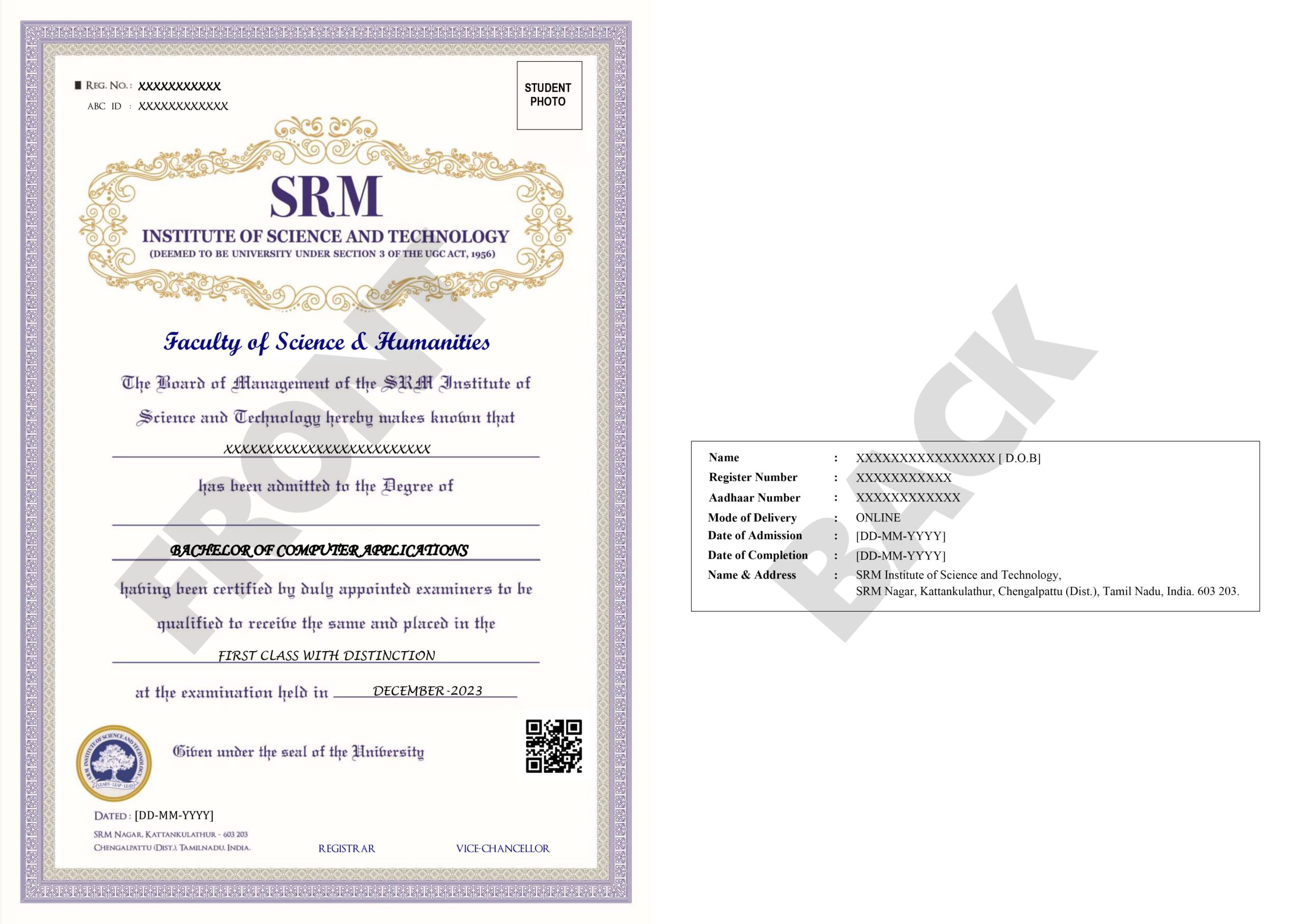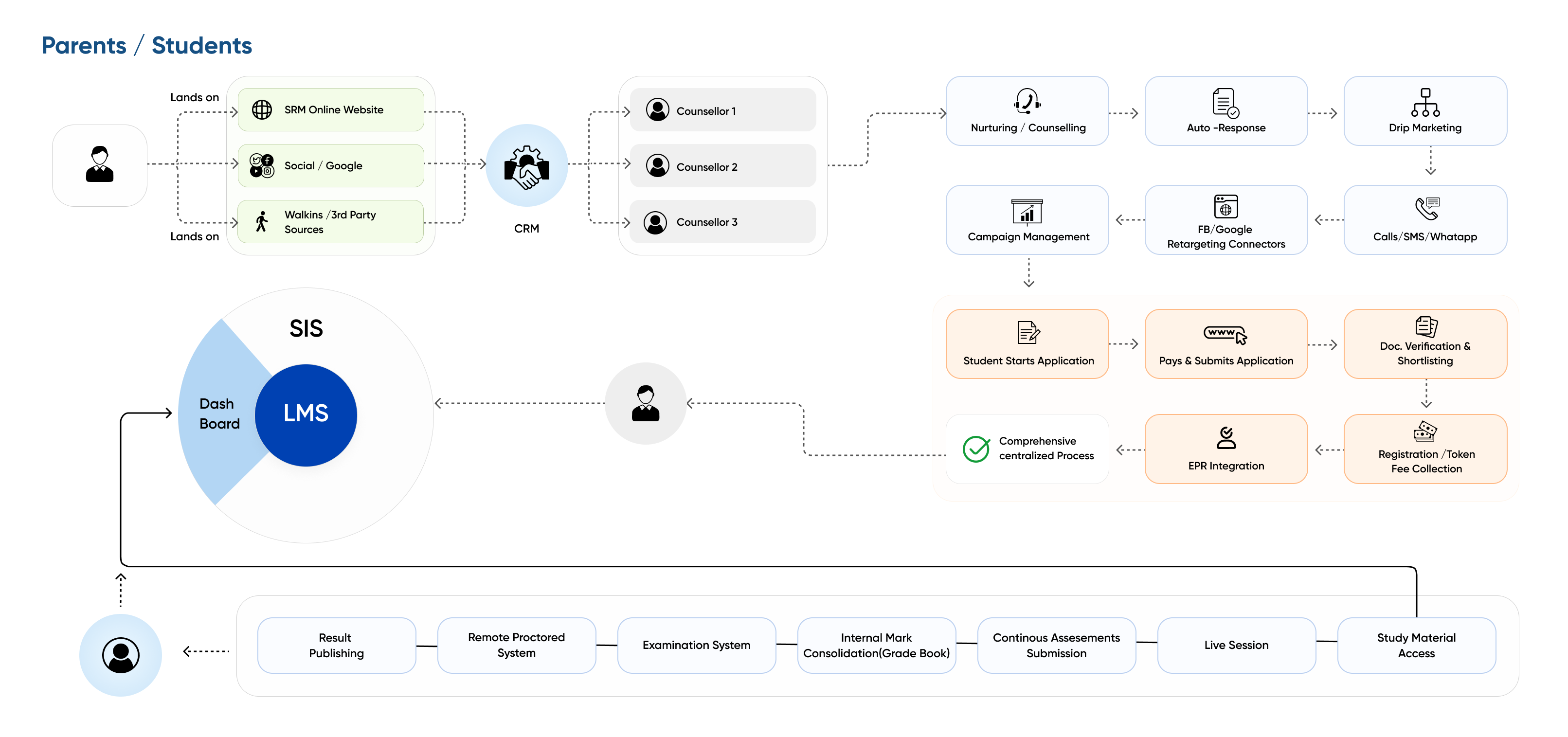

* Exclusive of Examination fee
Note: In addition to the tuition fees, the Exam fees for the semester and fees for certificates will be charged separately

Learn from a comprehensive curriculum taught by world-class faculty. Get
guidance on your learning journey, and access personality development.
![]()
Access opportunities
from 2300+ hiring partners
![]()
Build impressive resumes that
highlight your skill set along
with academic and professional experience
![]()
Workshop to help you prepare
for technical interviews
conducted by industry experts.
Live Online Learning | UGC Entitled | AICTE Recognized | Category One University
Bachelor of Computer Applications (BCA) is a three-year degree program which imparts an in-depth knowledge of computer applications, information technology theory, and programming practice by exposing them to various domains like Python, AI(Artificial Intelligence), Statistics with R, Machine Learning, Data Visualization and Programming Analytics. The courses in this programme are meant to provide possibilities and a means for students to transform themselves into industry in the diverse field of IT experts. Providing Students with the ability to successfully assess and give solutions for data visualization methodologies.
This curriculum allows participants to work as Operations Executives, Database Administrators in IT-enabled service sectors, System Analysts & Data Analysts, Web Application Developers, Software Testing, Consultants, and Network System Developers.
| Course Code | Course Title | Credit |
|---|---|---|
| V24UDS101 | Business English | 4 |
| V24UDS102 | Introduction to Data Science | 3 |
| V24UDS103 | Programming for Problem Solving | 6 |
| V24UDS104 | Data Analysis using Excel | 5 |
| V24UDS105 | Discrete Mathematical Structures | 4 |
| Total Learning Credits | 22 | |
| Course Code | Course Title | Credit |
|---|---|---|
| V24UDS201 | Programming in Java | 5 |
| V24UDS202 | Data Structures and Algorithms | 4 |
| V24UDS203 | Data base Systems | 6 |
| V24UDS204 | Mathematical Foundation | 4 |
| V24UDS205 | Introduction to Cloud Computing | 3 |
| Total Learning Credits | 22 | |
| Course Code | Course Title | Credit |
|---|---|---|
| V24UDS301 | Python Programming | 5 |
| V24UDS302 | Exploratory Data Analysis | 6 |
| V24UDS303 | Introduction to Artificial Intelligence | 3 |
| V24UDS304 | Statistics with R | 4 |
| V24UDS305 | Internship | 2 |
| Total Learning Credits | 20 | |
| Course Code | Course Title | Credit |
|---|---|---|
| V24UDS401 | Programming for Analytics | 4 |
| V24UDS402 | Data Visualization | 6 |
| V24UDS403 | Machine Learning | 4 |
| V24UDS404 | Data Pre-processing Techniques | 3 |
| V24UDS405 | Data Mining & Warehousing | 3 |
| Total Learning Credits | 20 | |
| Course Code | Course Title | Credit |
|---|---|---|
| V24UDS501 | Deep Learning | 5 |
| V24UDS502 | NoSQL | 5 |
| V24UDS504 | Big Data Analytics | 4 |
| V24UDS506 | Social Media & Text Analytics | 4 |
| Total Learning Credits | 18 | |
| Course Code | Course Title | Credit |
|---|---|---|
| V24UDS601 | Application Development on Cloud | 6 |
| V24UDS604 | Innovation & Entrepreneurship | 4 |
| V24UDS605 | Project Work | 8 |
| Total Learning Credits | 18 | |
Bachelor of Computer Applications (BCA) is an undergraduate degree program for 3 years in computer applications that is delivered entirely online. The program is designed to provide students with a strong foundation in computer programming, database management, software development, and other key areas of computer science.
After completing the programme, the learners will be capable of
SRM Online Learning Portal: Remote Proctored Examination System (RPES) - Learner's Checklist